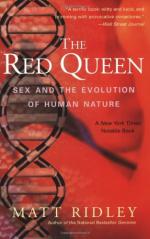
|
| Name: _________________________ | Period: ___________________ |
This test consists of 15 multiple choice questions and 5 short answer questions.
Multiple Choice Questions
1. What seems to be partially the result of genetics?
(a) The ability to distinguish easily between objects.
(b) The ability to see certain objects as whole.
(c) The ability to see whole objects distinctly.
(d) The ability to distinguish easily between objects and to see certain objects as whole.
2. According to Freud, a human's tendency is toward _________.
(a) Incest between family members.
(b) Their family's acceptance.
(c) Dismissing infidelity.
(d) Maintaining fidelity.
3. Most modern societies are _________.
(a) Uncivilized.
(b) Fundamentalist.
(c) Monogamous.
(d) Polygamous.
4. Who suggested the idea that language acquisition is partly the result of an innate or genetically acquired ability to learn grammar?
(a) Lamarck.
(b) Chomsky.
(c) Dawkins.
(d) Darwin.
5. What type of male do women find the most attractive?
(a) Romantic and polygamous.
(b) Taller and wittier.
(c) Athletic.
(d) Bearded.
6. When do women tend to have affairs?
(a) When their mate is unfaithful.
(b) When they are the most fertile.
(c) When they are sad.
(d) When their mate is gone for a long time.
7. Why do women prefer more intelligent men?
(a) They are less boring.
(b) They are less intimidating.
(c) They make more money.
(d) They can be funny.
8. Men and women behave and perform certain roles in every _______ and _____.
(a) Culture; country.
(b) Society; culture.
(c) Culture; society.
(d) Country; culture.
9. What do male primates do to their female's children who are not also their children?
(a) Ignore the children who are not their own.
(b) Kill the children that are not their own.
(c) Take care of all the children.
(d) Kill the female for having children from another mate.
10. Male and female brains are different because of __________.
(a) The female's superiority.
(b) The male's superiority.
(c) Sexual selection.
(d) Natural selection
11. Are there strong taboos against cousin marriage?
(a) Yes, because cousins are too close.
(b) Less harsh taboos because cousins are not raised together.
(c) Yes, but it depends on the culture.
(d) No, because cousins are not closely related.
12. Young boys show a propensity for __________.
(a) Physical activity.
(b) Math.
(c) Verbal tasks.
(d) Being Angry.
13. What have anthropologists found to be a universal characteristic of humans across different cultures?
(a) Jealousy.
(b) Hate.
(c) Desire.
(d) Depression.
14. What do women fantasize about?
(a) A large number of men.
(b) Having children.
(c) A smaller number of men.
(d) Being alone.
15. In a landscape, what will boys pick out as being important?
(a) Memories.
(b) Objects.
(c) Voices.
(d) People.
Short Answer Questions
1. Male human beings expect to have their _______ compete with the ________ of other males.
2. Why might cousins be attracted to each other?
3. Our ideas of attractiveness and our sexual inclinations seem to be _________.
4. Differences hold ___________, regardless of race, ethnicity, or culture.
5. What tends to stay private between humans?
|
This section contains 451 words (approx. 2 pages at 300 words per page) |

|




